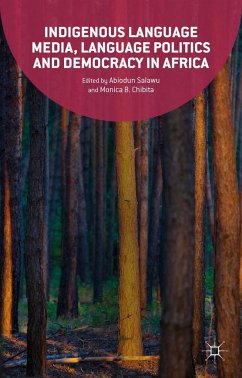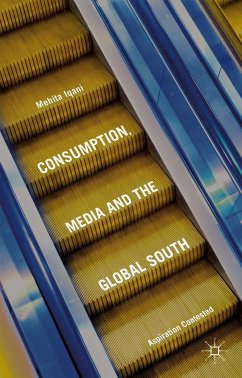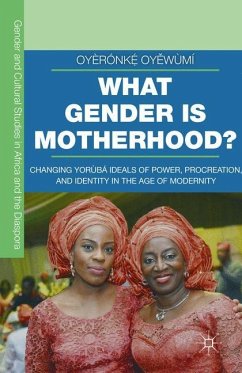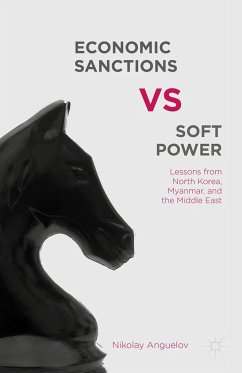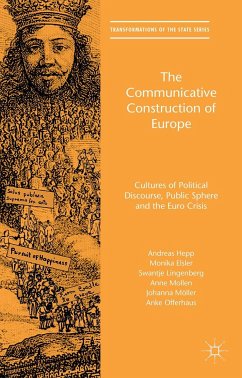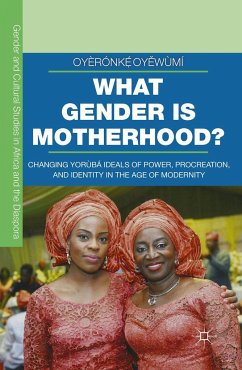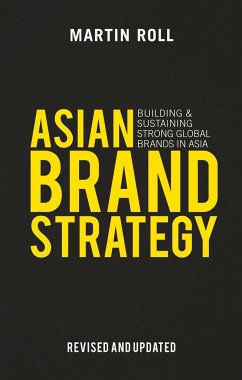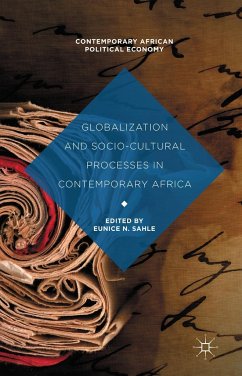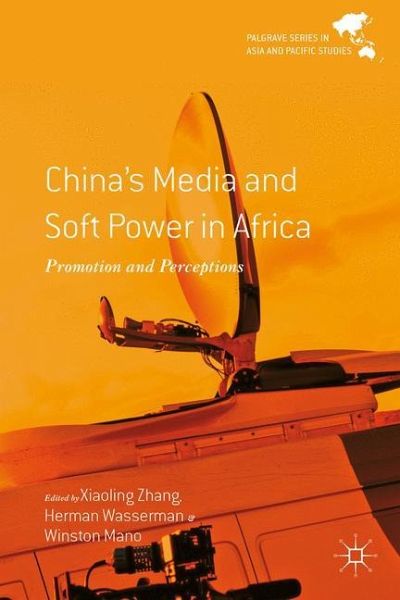
Gebundenes Buch
China's Media and Soft Power in Africa
Promotion and Perceptions
Herausgegeben: Zhang, Xiaoling; Wasserman, Herman; Mano, Winston
Versandkostenfrei!
Versandfertig in 6-10 Tagen

PAYBACK Punkte
31 °P sammeln!





This volume brings together scholars from different disciplines and nations to examine and assess the effectiveness of China's soft power initiatives in Africa. It throws light not only on China's engagement with Africa but also on how China's increasing influence is received in the African media.
Xiaoling Zhang is Associate Professor and Head of the School of Contemporary Chinese Studies at the University of Nottingham Ningbo, China. She is the author of The Transformation of Political Communication in China: From Propaganda to Hegemony. Herman Wasserman is Professor of Media Studies and Director of Centre for Film and Media Studies, University of Cape Town, South Africa. He is editor of African Journalism Studies and author of Tabloid Journalism in South Africa: True Story! Winston Mano is Director of Africa Media Centre and Reader in Media and Communication Studies, University of Westminster, UK and Editor of the Journal of African Media Studies. He is also a Senior Research Associate in the School of Communication at the University of Johannesburg, South Africa.
Produktdetails
- Palgrave Series in Asia and Pacific Studies
- Verlag: Springer Palgrave Macmillan
- Artikelnr. des Verlages: 978-1-137-54565-7
- 1st edition 2016
- Seitenzahl: 252
- Erscheinungstermin: 2. März 2016
- Englisch
- Abmessung: 222mm x 145mm x 19mm
- Gewicht: 441g
- ISBN-13: 9781137545657
- ISBN-10: 1137545658
- Artikelnr.: 44570731
Herstellerkennzeichnung
Palgrave Macmillan
Tiergartenstr. 17
69121 Heidelberg
ProductSafety@springernature.com
Colin Sparks, Chair Professor of Media Studies, Hong Kong Baptist University, Hong Kong
This book will have a mainly, or entirely, scholarly audience. It will be most suitable for graduate level courses, although there are some specialised undergraduate courses, particularly at upper levels in Europe that might find at least some of the material sufficiently useful to use for teaching purposes. Its audience will be found in two main areas: media and communication studies and international relations. For the former, it will be of greatest use in courses that focus on international communication, media and development, African media, and media-state relations. For the latter, it will be of value to courses on Chinese foreign policy,
This book will have a mainly, or entirely, scholarly audience. It will be most suitable for graduate level courses, although there are some specialised undergraduate courses, particularly at upper levels in Europe that might find at least some of the material sufficiently useful to use for teaching purposes. Its audience will be found in two main areas: media and communication studies and international relations. For the former, it will be of greatest use in courses that focus on international communication, media and development, African media, and media-state relations. For the latter, it will be of value to courses on Chinese foreign policy,
Mehr anzeigen
inter-state relations and developmental aid as foreign policy. It will also, of course, find an audience in development studies, African studies, and Chinese studies.
The book addresses what is a very important contemporary problem which has attracted a great deal of scholarly attention. From one point of view, it engages with the burgeoning literature about 'China's rise' and in particular the very vexed, and much written about, issue of Chinese attempts to develop 'soft power.' At another level it deals with concerns over the impact, particularly the political impact, of China's soft power efforts in the African continent and the degree to which these represent the justification either for a new and effective development model or another form of imperialism. The intellectual issues it confronts are therefore central to a range of discussions both in media studies and in international relations. There is, therefore, no doubt about the significance of the work. Two of the editors, Wasserman and Mano, are very well known as leading scholars on African media. The lead author, Zhang, is a prominent scholar of Chinese media. There is no doubt that they are capable of ensuring that the project is both of high quality and keeps within a manageable time-frame. The contributors are a combination of leading scholars (for example, Daya Thussu) who can be relied upon to turn in high-quality material (although it may not be their most original work...) and younger scholars whose doctoral research is on topics directly relevant to theme of the book. The latter always represent something of risk, of course, but in this case I think the editors are sufficiently experienced to ensure that all of the contributions reach an acceptable scholarly standard.
The structure of the book seems to me excellent. It is sensible to open with a discussion of the theoretical and historical issues involved before looking at some of the more contentious questions of policy and ending with case studies of particular African countries. The balance between international, African and Chinese scholars is a good one, although experience suggests that it will require rather a lot of work to ensure that the Chinese scholars (other than Professor Zhang) address issues in the manner which international (i.e. western) scholars expect from scholarly articles. If I were the editor, I think that in the interests of balance I would try to find a paper that examined the possible reasons for the positive appeal of the 'Beijing Consensus' in Africa , since I can see from what I know of the existing work of the contributors that there is an overall tendency (bias?) towards emphasising the negative aspects of China as an obstacle to soft power. This is still a very contentious issue, and perhaps the work of some the scholars involved, with whom I am not familiar, will address this.
The book addresses what is a very important contemporary problem which has attracted a great deal of scholarly attention. From one point of view, it engages with the burgeoning literature about 'China's rise' and in particular the very vexed, and much written about, issue of Chinese attempts to develop 'soft power.' At another level it deals with concerns over the impact, particularly the political impact, of China's soft power efforts in the African continent and the degree to which these represent the justification either for a new and effective development model or another form of imperialism. The intellectual issues it confronts are therefore central to a range of discussions both in media studies and in international relations. There is, therefore, no doubt about the significance of the work. Two of the editors, Wasserman and Mano, are very well known as leading scholars on African media. The lead author, Zhang, is a prominent scholar of Chinese media. There is no doubt that they are capable of ensuring that the project is both of high quality and keeps within a manageable time-frame. The contributors are a combination of leading scholars (for example, Daya Thussu) who can be relied upon to turn in high-quality material (although it may not be their most original work...) and younger scholars whose doctoral research is on topics directly relevant to theme of the book. The latter always represent something of risk, of course, but in this case I think the editors are sufficiently experienced to ensure that all of the contributions reach an acceptable scholarly standard.
The structure of the book seems to me excellent. It is sensible to open with a discussion of the theoretical and historical issues involved before looking at some of the more contentious questions of policy and ending with case studies of particular African countries. The balance between international, African and Chinese scholars is a good one, although experience suggests that it will require rather a lot of work to ensure that the Chinese scholars (other than Professor Zhang) address issues in the manner which international (i.e. western) scholars expect from scholarly articles. If I were the editor, I think that in the interests of balance I would try to find a paper that examined the possible reasons for the positive appeal of the 'Beijing Consensus' in Africa , since I can see from what I know of the existing work of the contributors that there is an overall tendency (bias?) towards emphasising the negative aspects of China as an obstacle to soft power. This is still a very contentious issue, and perhaps the work of some the scholars involved, with whom I am not familiar, will address this.
Schließen
Für dieses Produkt wurde noch keine Bewertung abgegeben. Wir würden uns sehr freuen, wenn du die erste Bewertung schreibst!
Eine Bewertung schreiben
Eine Bewertung schreiben
Andere Kunden interessierten sich für




